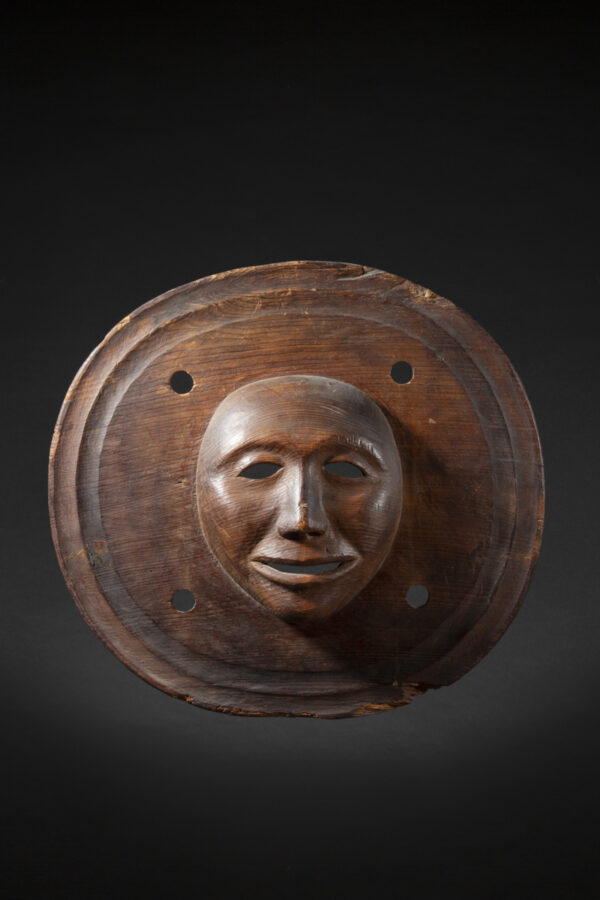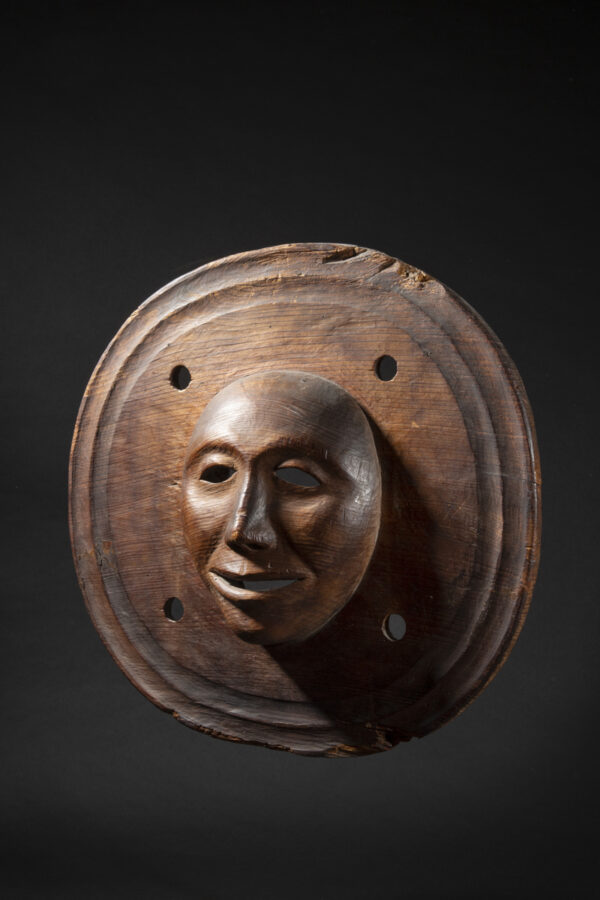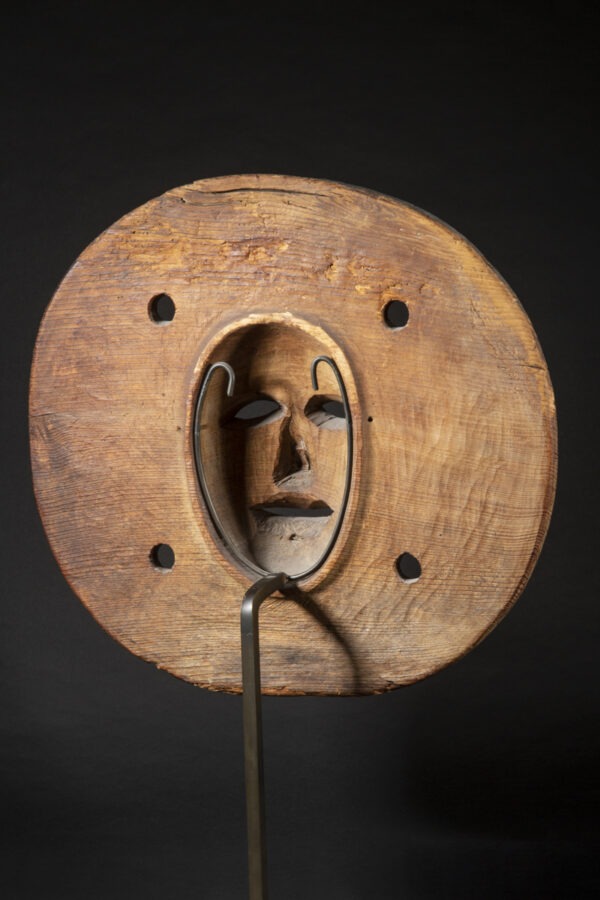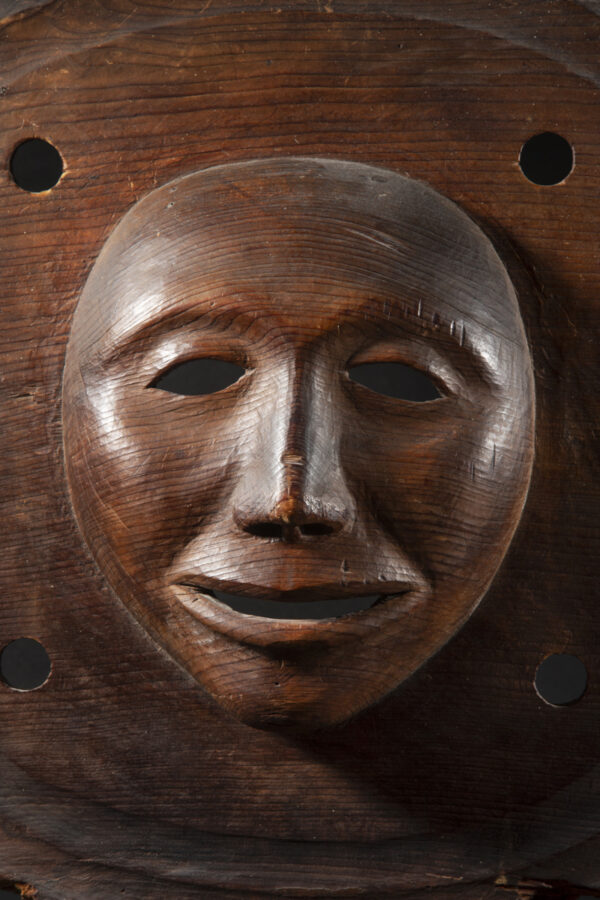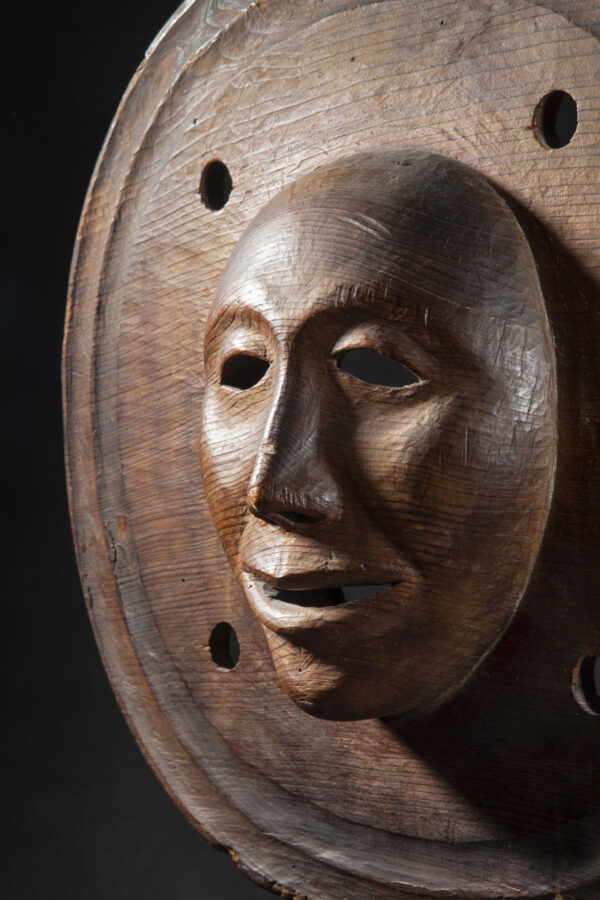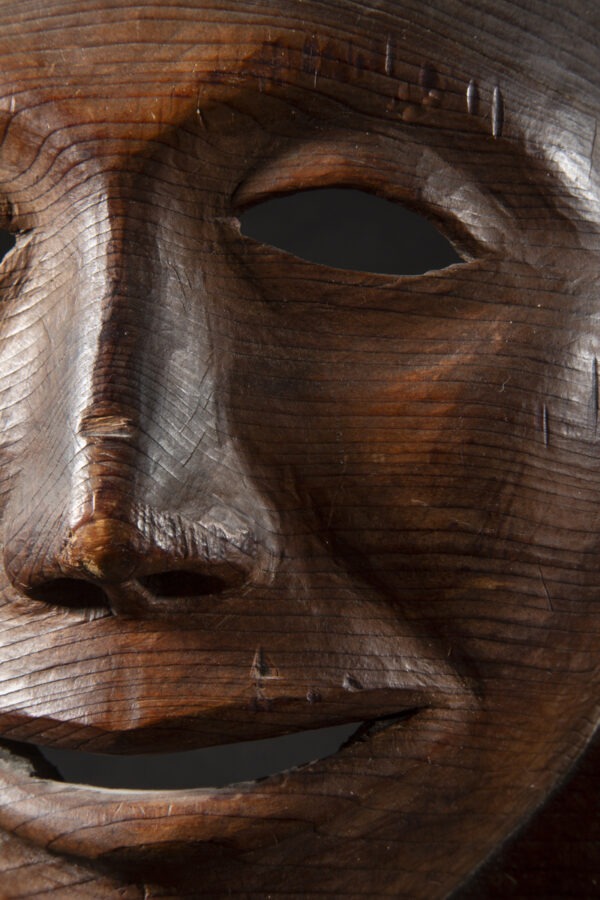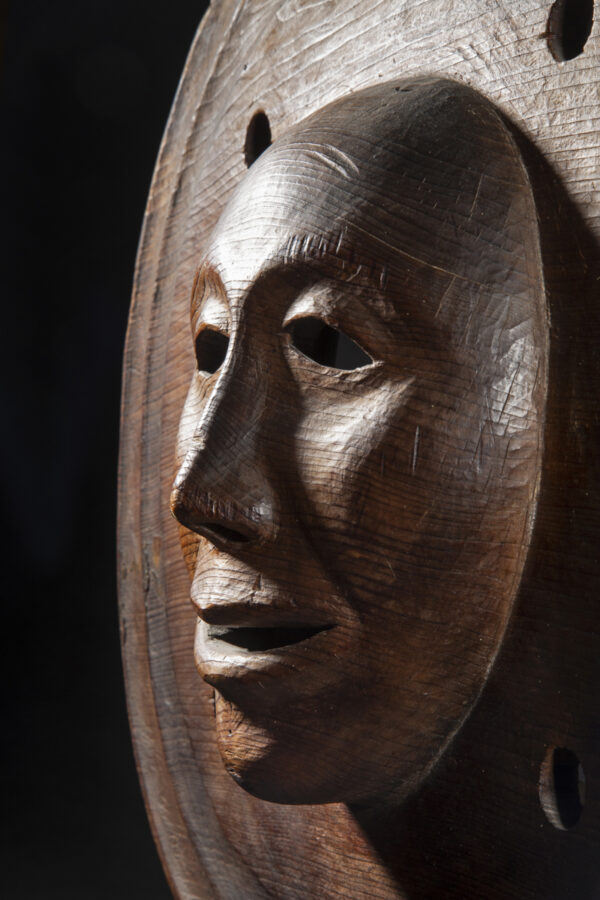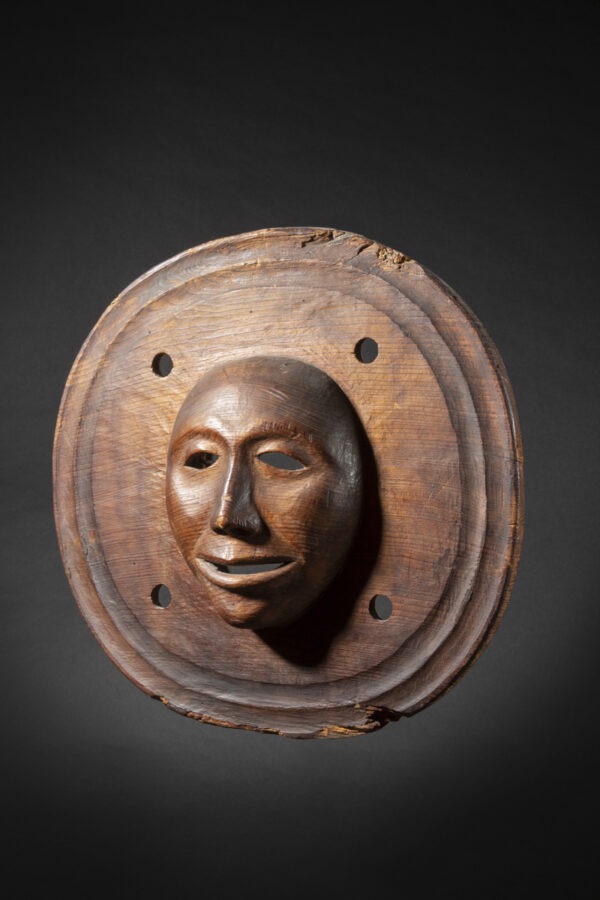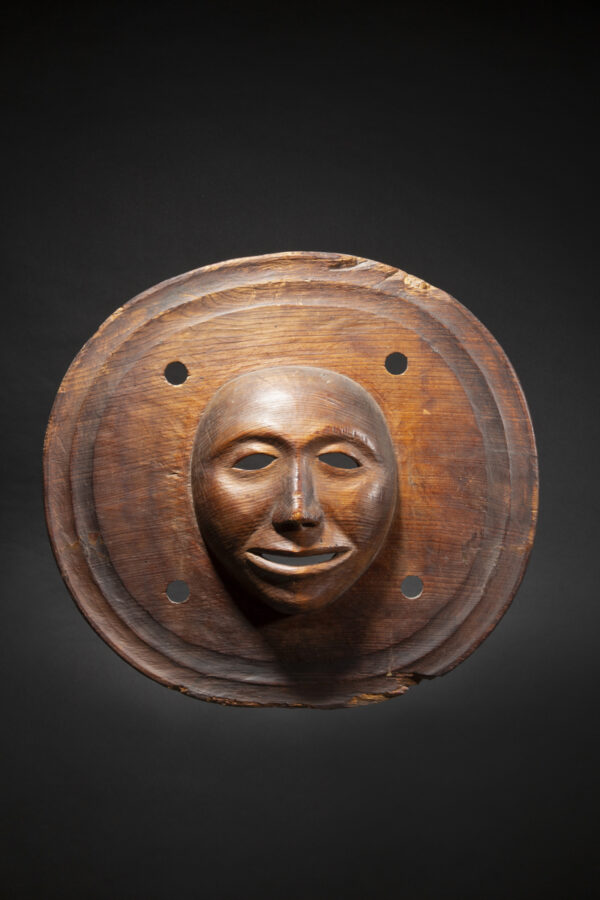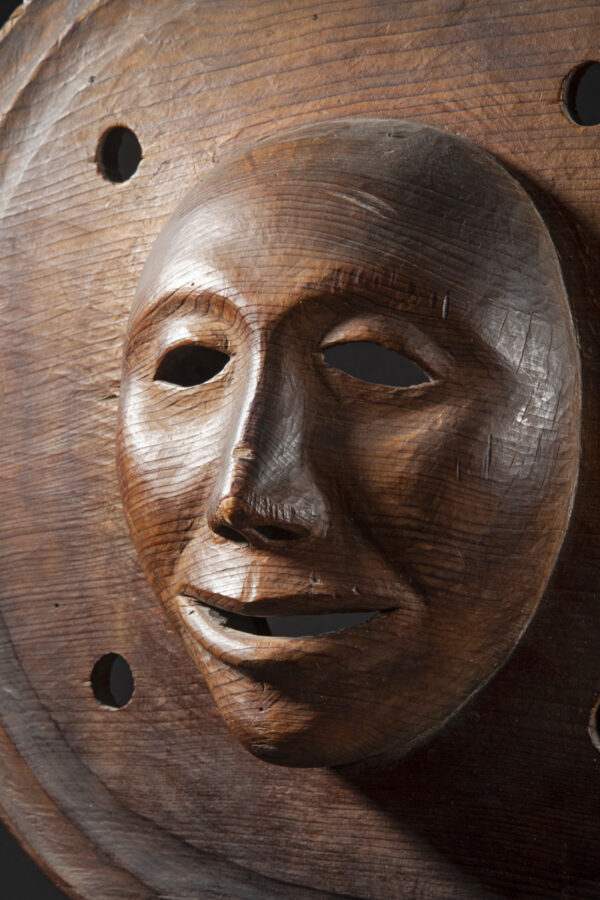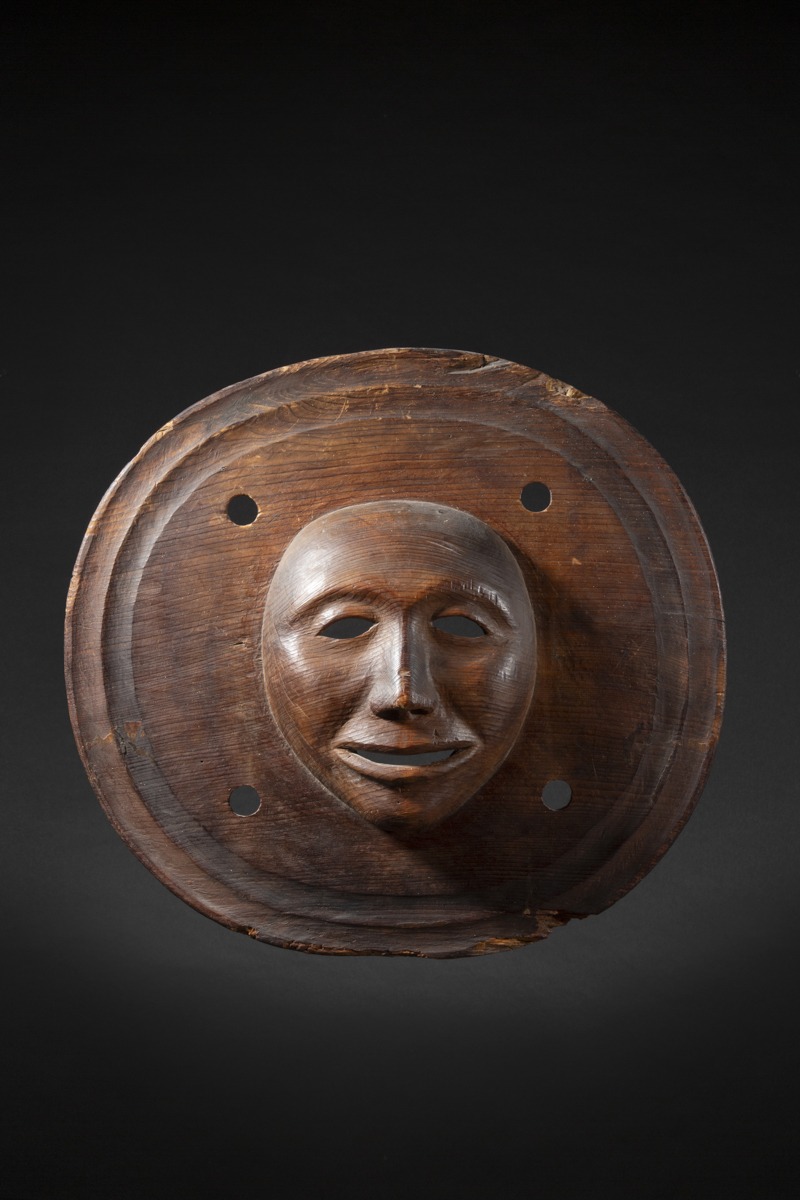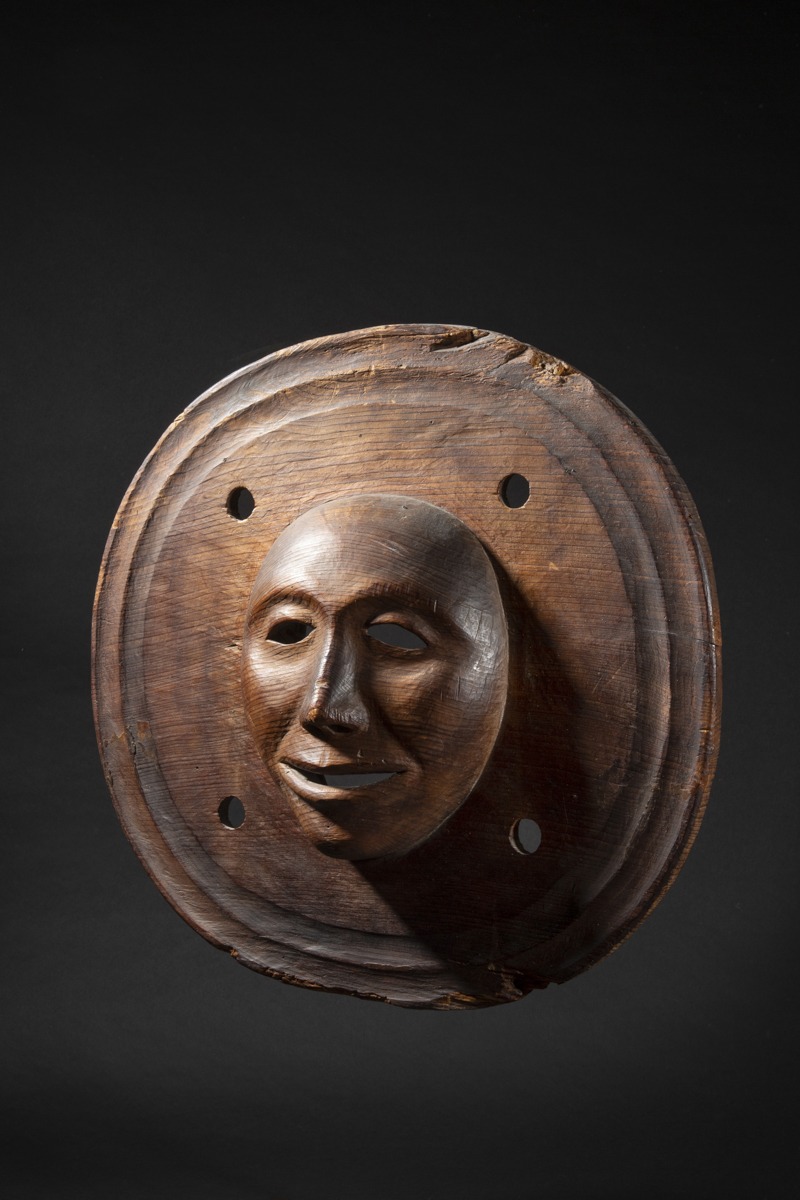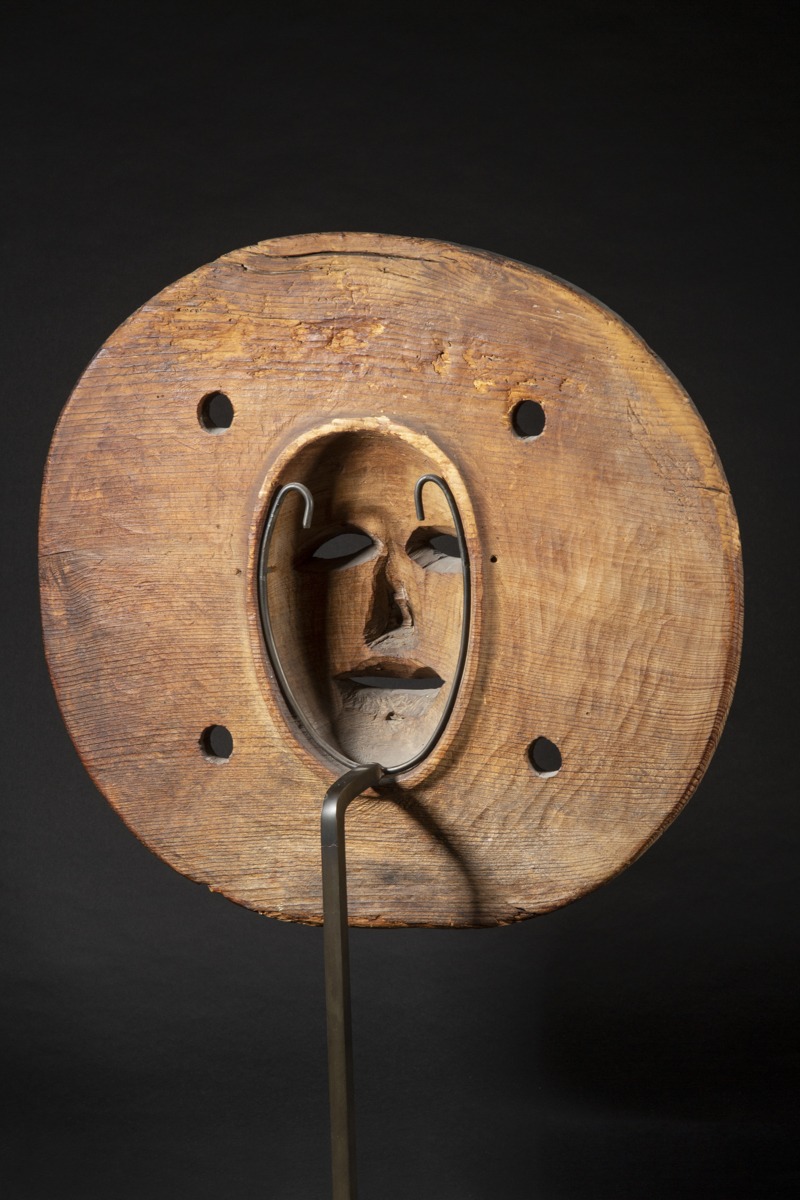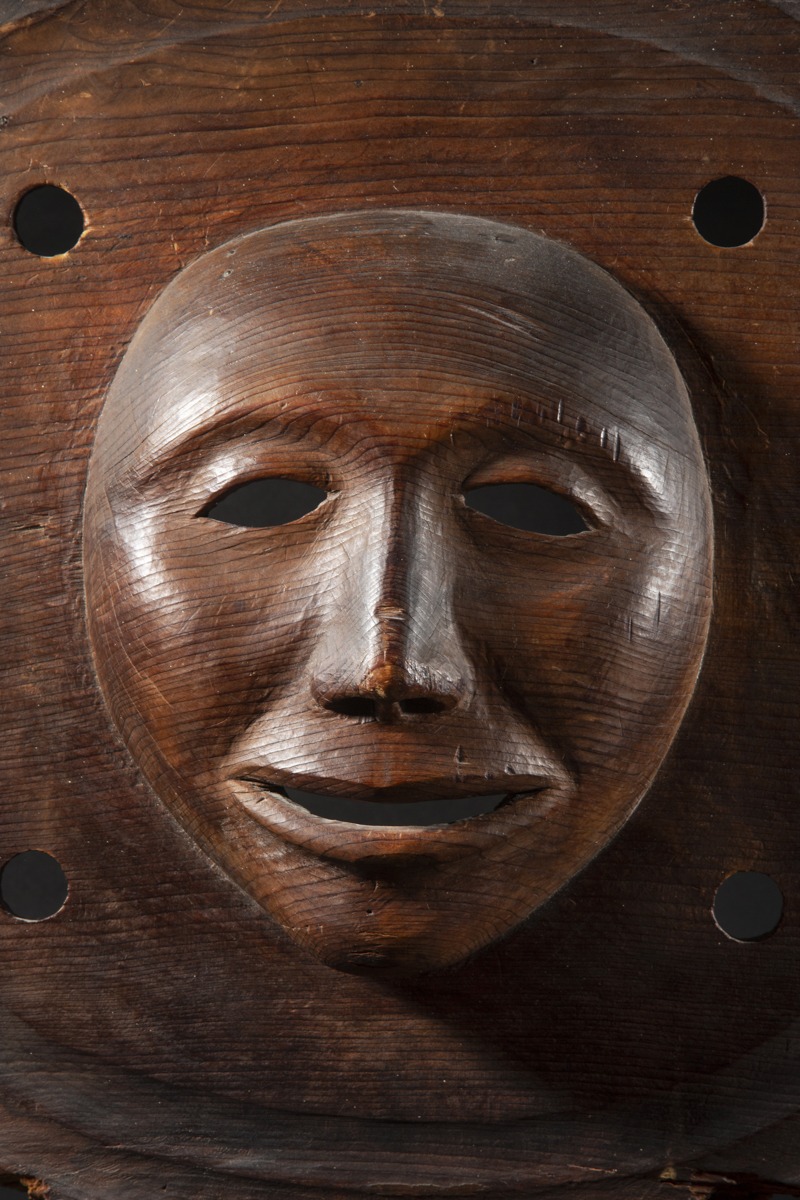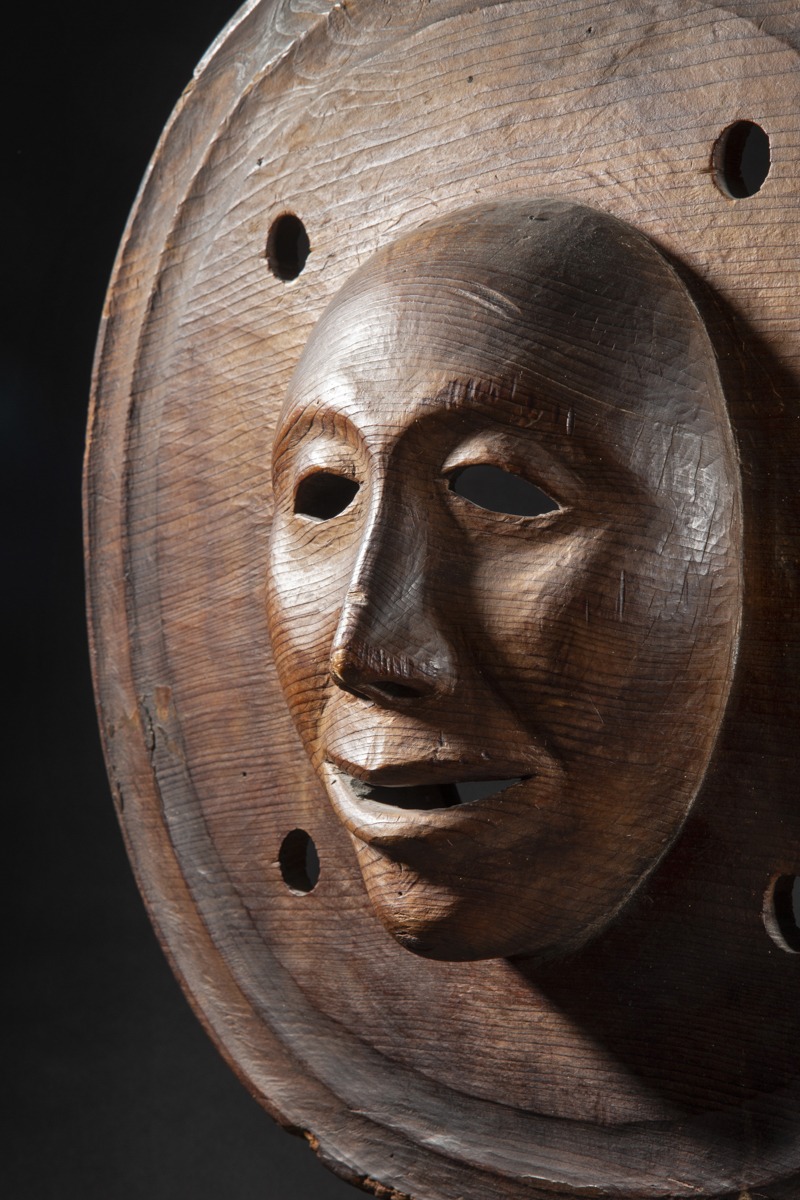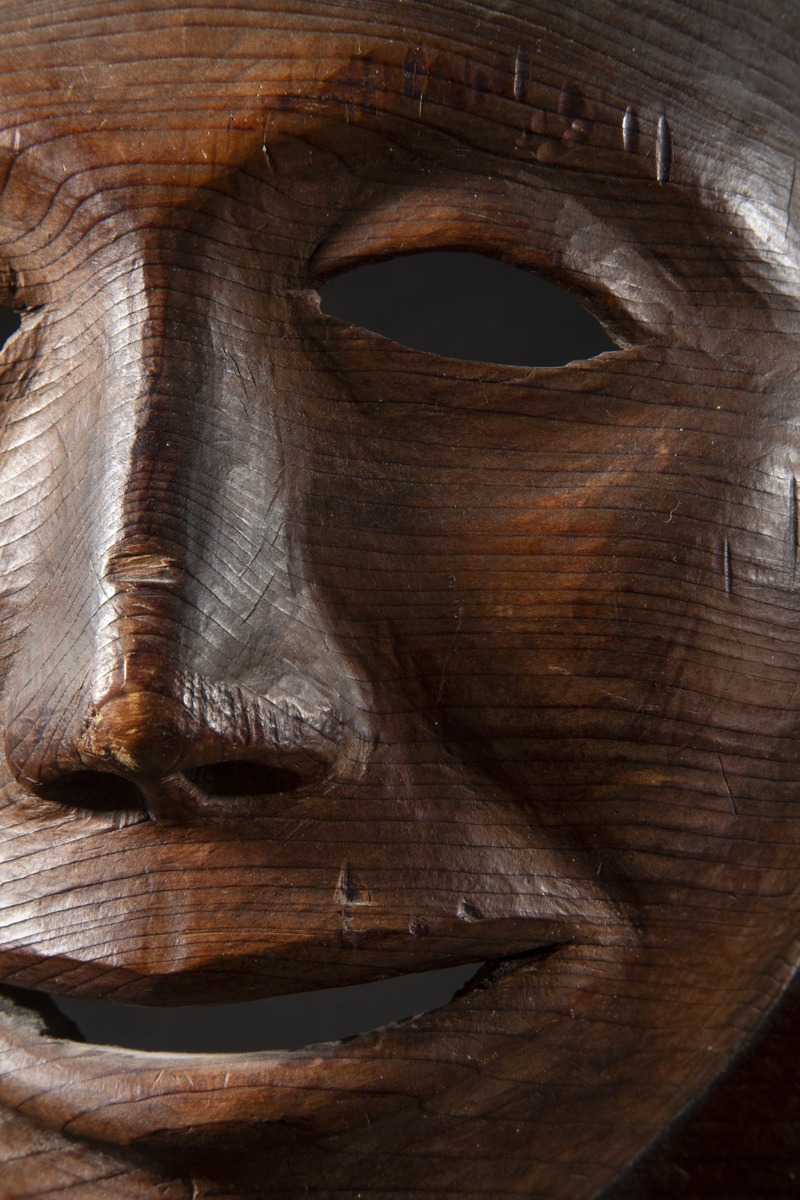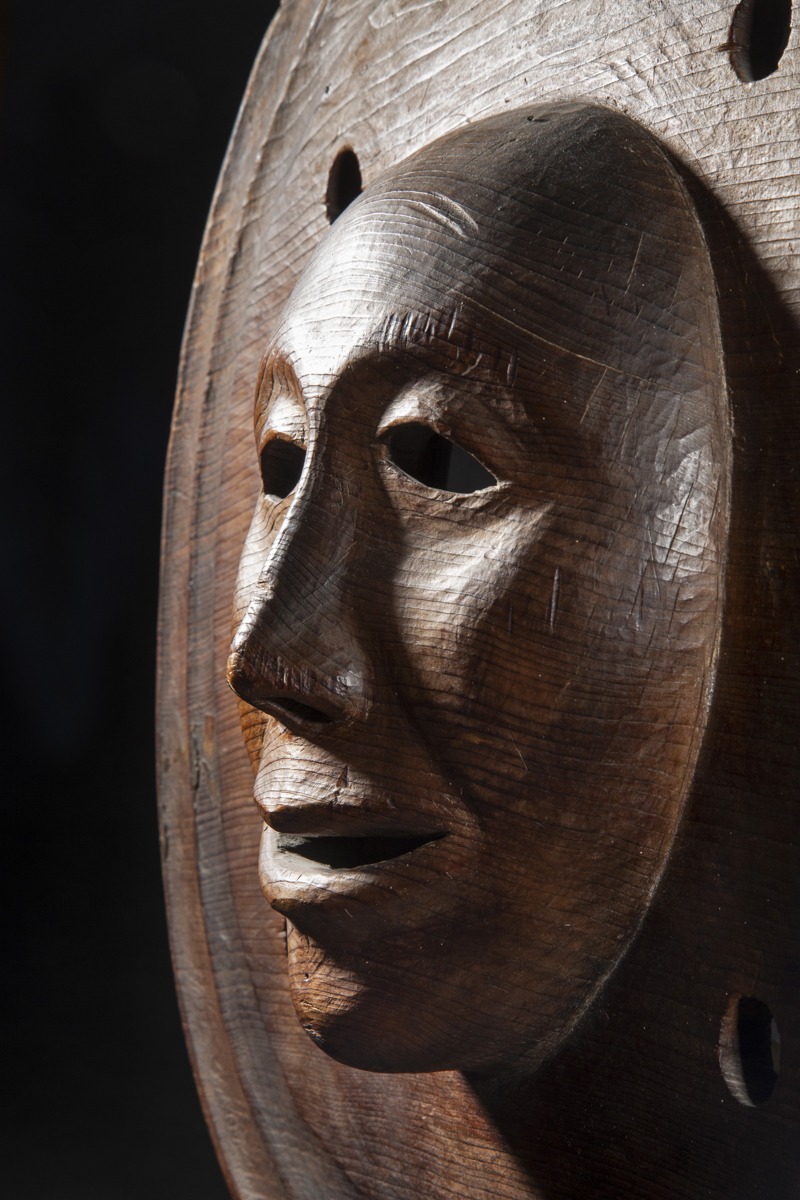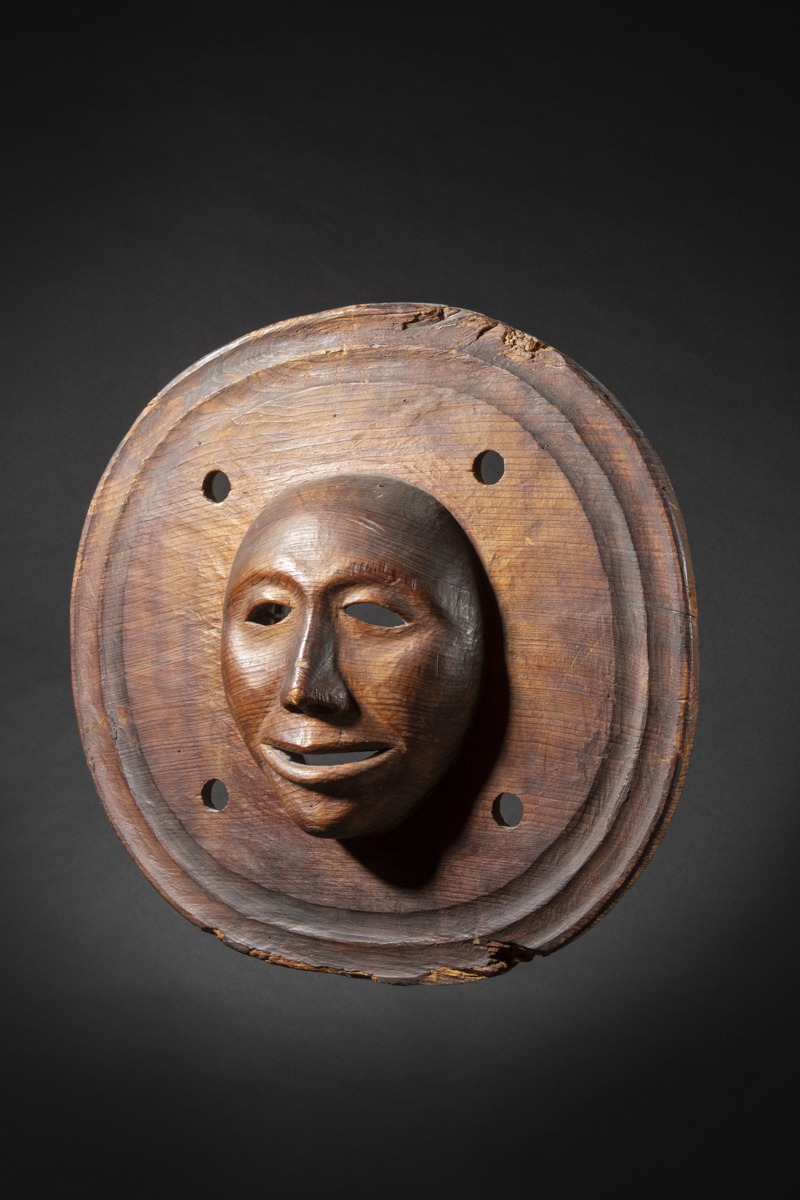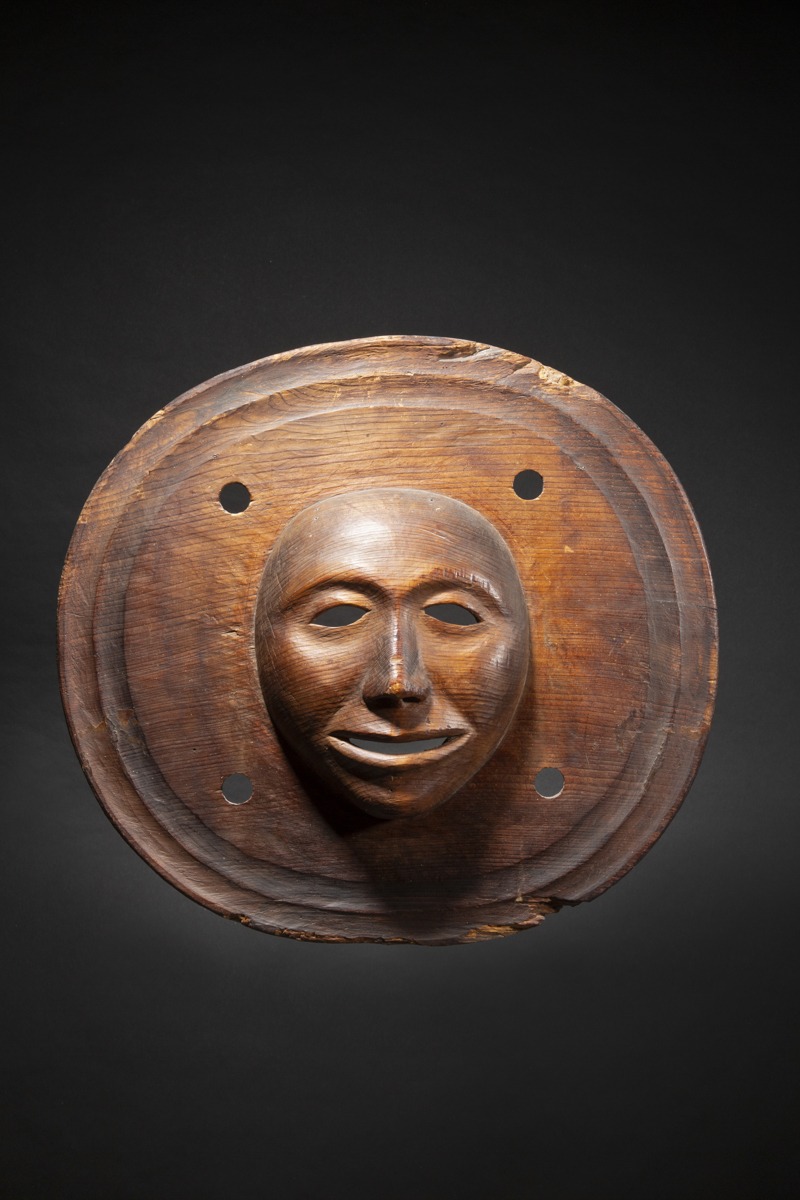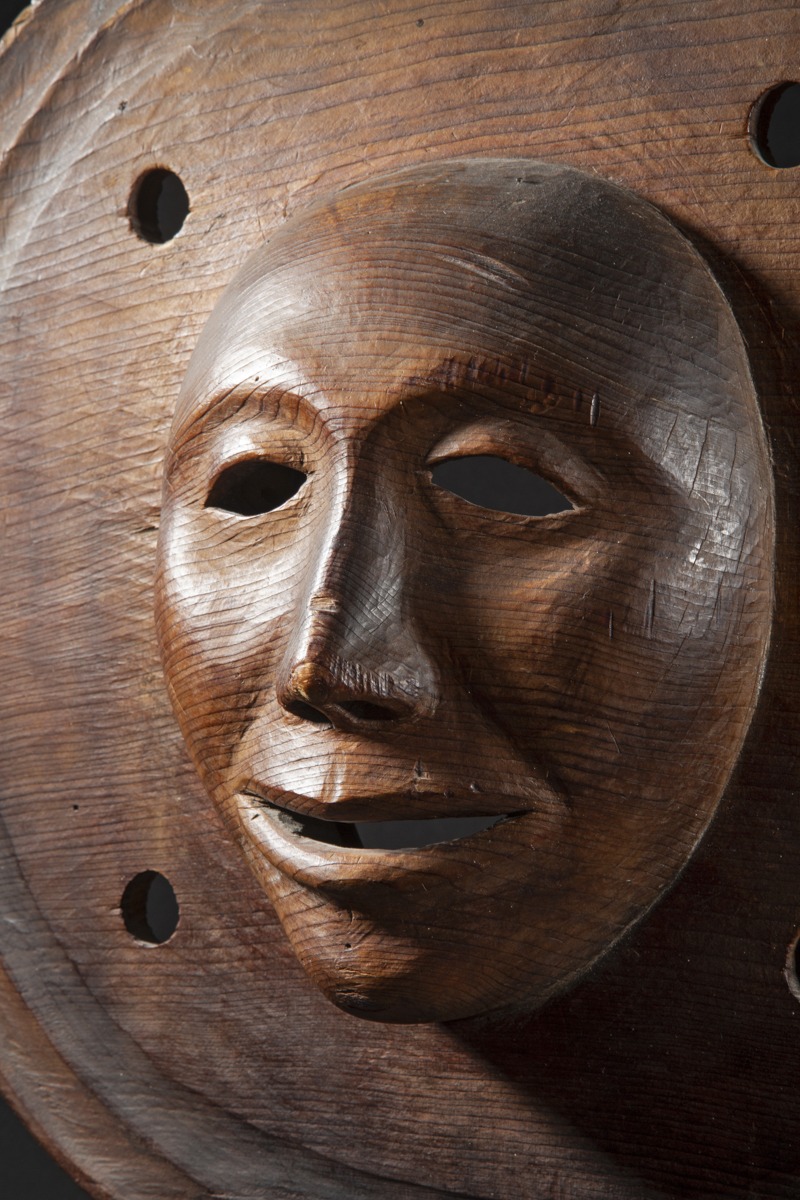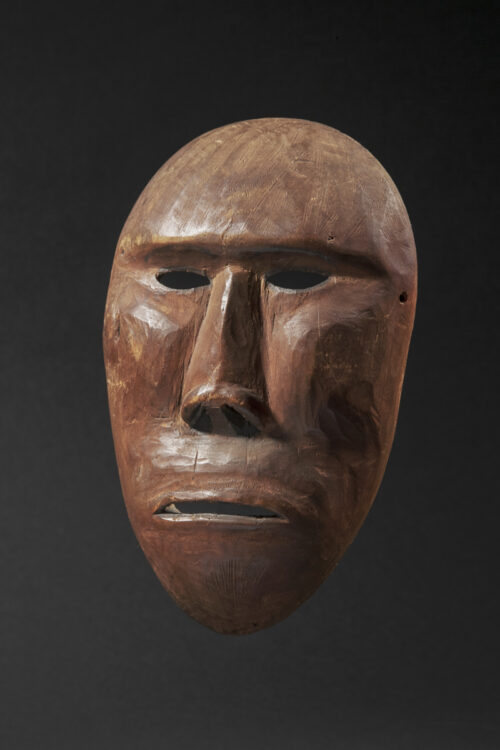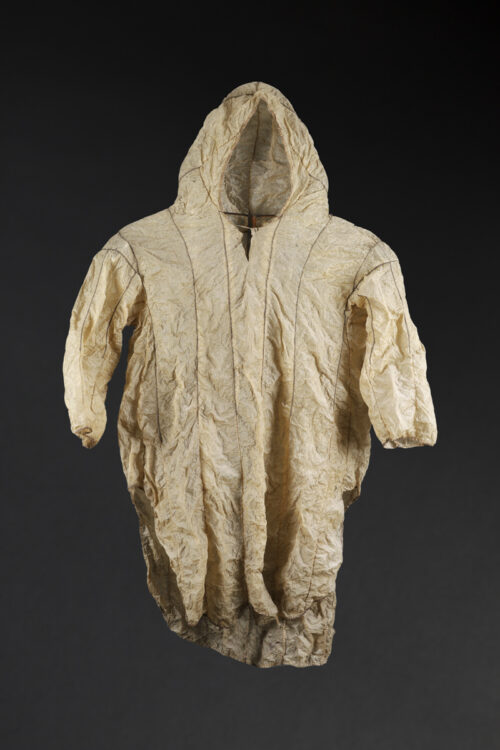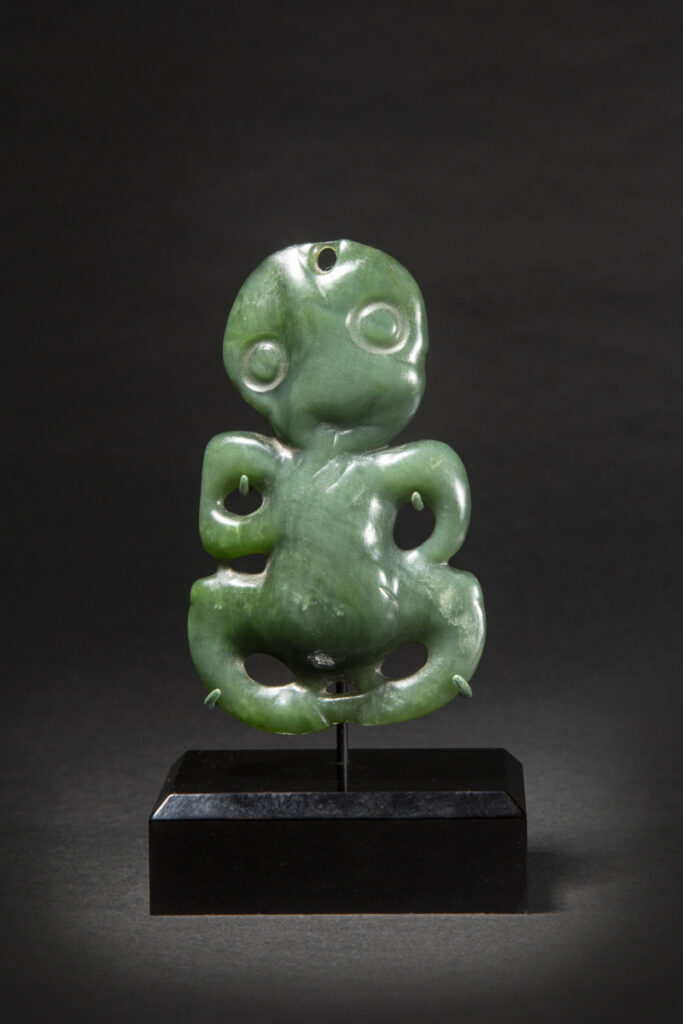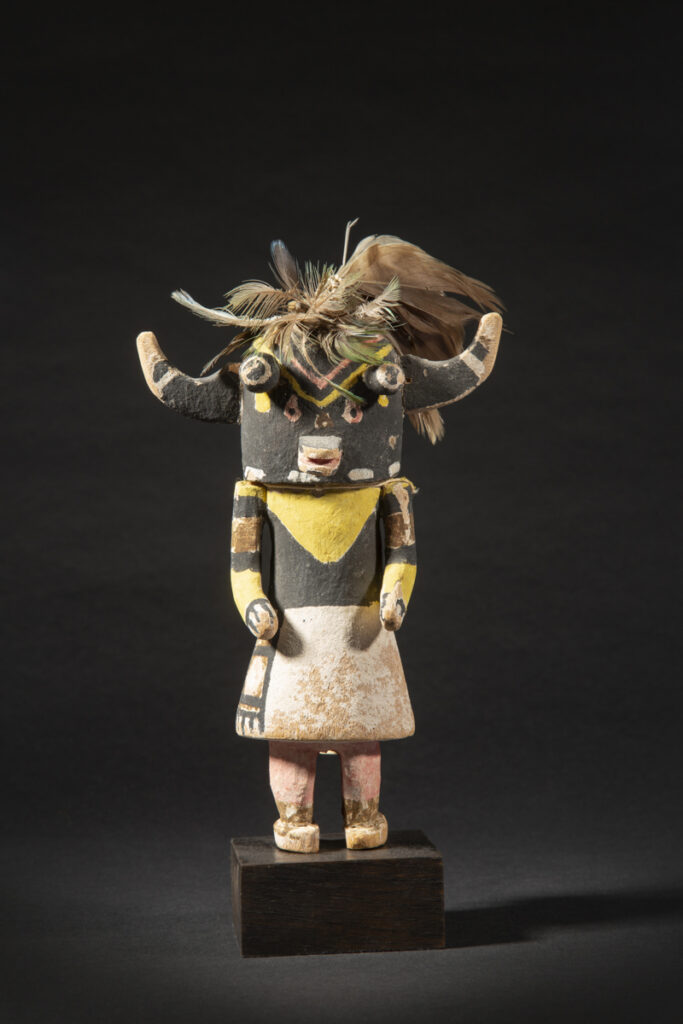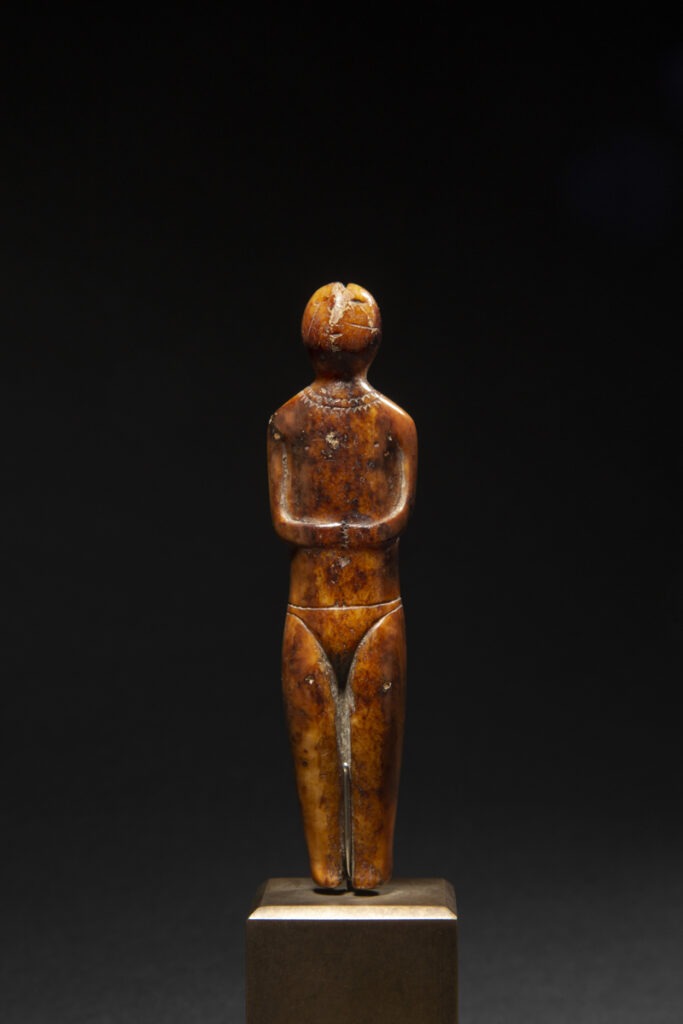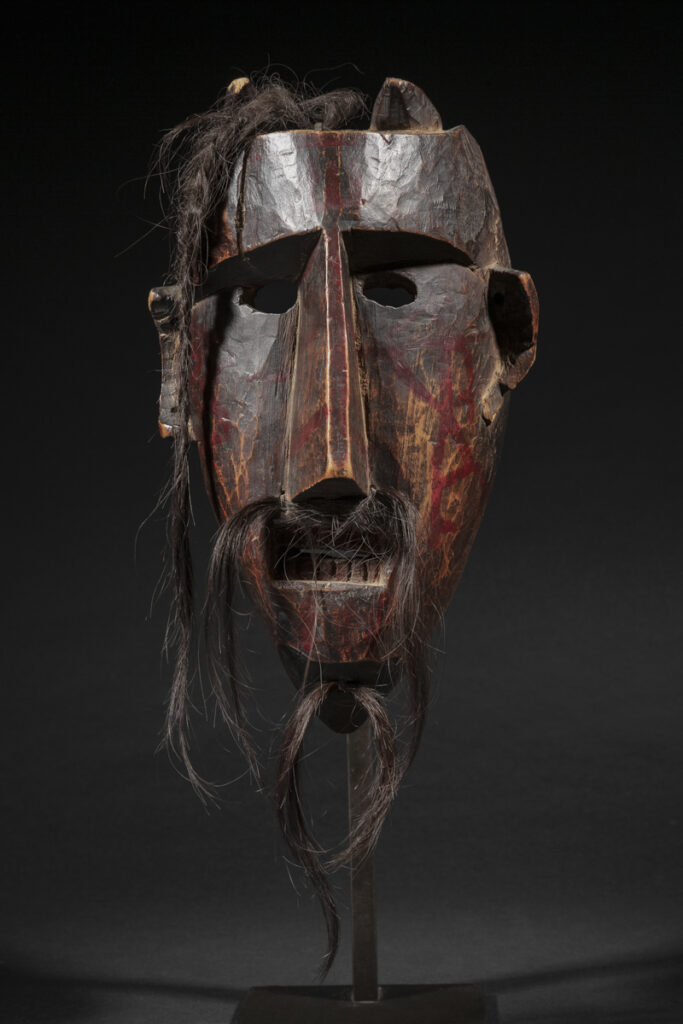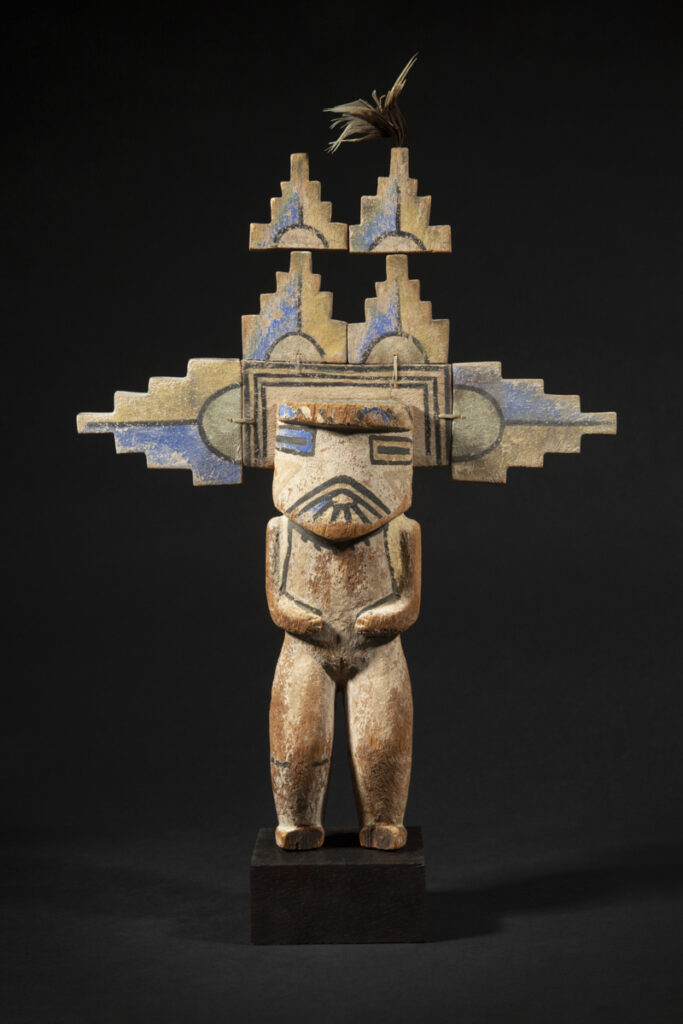North America | Alaska
Yup’ik mask
Alaska
Large Nepcetaq shamanic plaque mask
Yup’ik Eskimo
19th century
Carved wood
Height: 45 cm – 17 ¾ in.
Width: 49 cm – 19 ¼ in.
Provenance
Private collection, North America
Christie’s Paris, 19 June 2013, lot 76
Collection Daniel Hourdé, Paris, acquired at the above sale
Large Nepcetaq mask Yupik / Galerie Flak
Price: on request
The Subarctic region inhabited by the Yup’ik Eskimo in Alaska is well supplied with land and sea resources allowing for much time that could be devoted to a full ceremonial life. After freeze up in the winter, performance cycles were undertaken that were important to maintaining proper human, animal and spirit-world interactions.
Performed inside the «qasaiq» (communal men’s house) during festivals, dances featured masks that made visible the world of helping spirits and extraordinary beings, and were specially made to tell particular stories. Often used by shamans to facilitate communication and movement between worlds (the shamanic voyage), Yup’ik masks were usually discarded after use.
Large plaque masks of this type are found in the Yukon-Kuskokwim delta, from Anvik to St. Michael’s to Cape Vancouver, and on Saint Lawrence Island. They are known as Nepcetaq meaning "the ones that stick (or cling) to the face". As Ann Fienup-Riordan notes in The Living tradition of Yu’ik maks, (University of Washington Press page 78) “a shaman or angalkug would use his power to draw a mask to his face and dance with it without using his hands, any strings, or other means to hold the mask in place. (…) The four holes in the large backboard represent the passages that the animal spirits would take on their journey to the world. The shaman used such a mask to demonstrate his power and to draw animals near to the hunters.”
Performed inside the «qasaiq» (communal men’s house) during festivals, dances featured masks that made visible the world of helping spirits and extraordinary beings, and were specially made to tell particular stories. Often used by shamans to facilitate communication and movement between worlds (the shamanic voyage), Yup’ik masks were usually discarded after use.
Large plaque masks of this type are found in the Yukon-Kuskokwim delta, from Anvik to St. Michael’s to Cape Vancouver, and on Saint Lawrence Island. They are known as Nepcetaq meaning "the ones that stick (or cling) to the face". As Ann Fienup-Riordan notes in The Living tradition of Yu’ik maks, (University of Washington Press page 78) “a shaman or angalkug would use his power to draw a mask to his face and dance with it without using his hands, any strings, or other means to hold the mask in place. (…) The four holes in the large backboard represent the passages that the animal spirits would take on their journey to the world. The shaman used such a mask to demonstrate his power and to draw animals near to the hunters.”
Explore the entire collection
